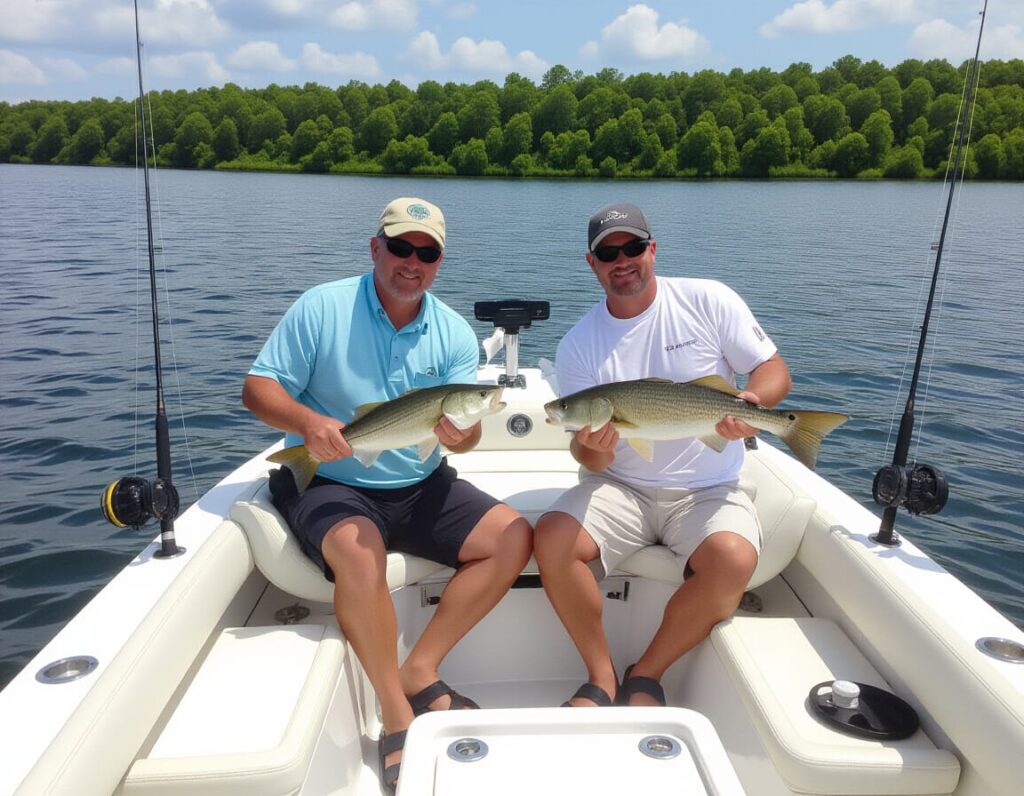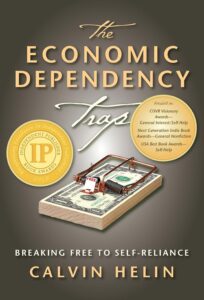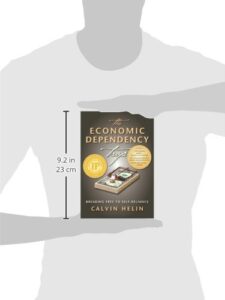“Give a man a fish, and you feed him for a day. Teach a man to fish, and you feed him for a lifetime.”
This ancient proverb, often attributed to various sources from Confucian philosophy to Moses Maimonides, has echoed through centuries of human wisdom. Yet in 2025, as we navigate an increasingly complex world of artificial intelligence, economic uncertainty, and social transformation, these words have never felt more relevant.

The Dependency Trap in Modern Society
Walk through any major city today, and you’ll witness a paradox: unprecedented wealth existing alongside persistent poverty, cutting-edge technology coexisting with fundamental skill gaps, and endless information available while practical knowledge remains scarce.
Consider the modern welfare state. Government assistance programs provide essential support to millions, yet critics and beneficiaries alike recognize a troubling pattern. When aid comes without education, without skill-building, without a pathway to self-sufficiency, it can inadvertently create cycles of dependency that span generations. The fish keeps coming, but the fishing lessons never arrive.
This isn’t an argument against compassion or social safety nets. Rather, it’s a call to reimagine how we help. A parent who pays all their adult child’s bills isn’t necessarily being kind; they might be preventing crucial life lessons. A manager who constantly fixes their team’s mistakes isn’t being supportive; they’re blocking professional growth. A society that only offers handouts without pathways to self-reliance isn’t being generous; it’s being shortsighted.
The Education Revolution We Actually Need
The proverb takes on new dimensions in our educational landscape. We’ve built an elaborate system of schools and universities, yet many graduates enter the workforce unprepared for actual work. They’ve been given fish in the form of degrees and certificates, but have they truly learned to fish?
Consider the skills gap crisis plaguing industries worldwide. Companies desperately seek workers with practical abilities while millions of educated individuals remain unemployed or underemployed. The disconnect is staggering. Traditional education often prioritizes memorization over problem-solving, theory over application, credentials over competence.
The most valuable education today teaches meta-skills: how to learn independently, how to solve novel problems, how to adapt when circumstances change. It’s not about mastering one fishing technique; it’s about understanding fish behavior, weather patterns, water ecosystems, and equipment maintenance. It’s about becoming someone who can figure out how to fish in any waters, anywhere.
Online learning platforms, coding bootcamps, and apprenticeship programs are disrupting this model precisely because they focus on practical skills and real-world application. They’re teaching people to fish in ways traditional institutions often fail to do.
The Technology Double-Edged Sword
Technology presents perhaps the most fascinating modern interpretation of this proverb. Every app and algorithm that solves a problem for us is a fish being handed over. Every platform that teaches us how to solve problems ourselves is a fishing lesson.
GPS navigation gives us fish by getting us to our destination. But it also atrophies our spatial awareness and ability to read maps or navigate by landmarks. Spell-check gives us fish by correcting our errors. But are we losing the ability to spell correctly on our own? Calculator apps solve our math problems. But do we understand the underlying mathematical principles?
Artificial intelligence amplifies this dilemma exponentially. AI can write our emails, generate our presentations, code our software, and answer our questions. Each use is a fish handed to us. But are we learning anything? Or are we becoming increasingly dependent on tools we don’t understand, solving problems using processes we can’t replicate?
The alternative approach is treating technology as a fishing rod rather than a fish. Using AI to learn coding by examining and modifying its output. Using translation tools to accelerate language learning rather than replace it. Using information at our fingertips not to avoid thinking, but to think more deeply and critically.
The Workplace Transformation
Modern management theory has largely embraced the fishing proverb’s wisdom, even if imperfectly. The shift from micromanagement to empowerment, from task delegation to skill development, reflects this understanding.
The best leaders don’t just assign work; they develop capability. They don’t just solve problems for their teams; they teach problem-solving frameworks. They create environments where failure becomes learning rather than catastrophe. They understand that building a team of skilled fishermen creates more value than personally catching fish for everyone.
Yet many workplaces still operate on the old model. Managers hoard knowledge and decision-making power. Training budgets get cut first during downturns. Junior employees get stuck doing menial tasks without understanding the bigger picture or gaining transferable skills.
Progressive companies recognize that employee development isn’t a cost; it’s an investment. Every skill taught, every lesson learned, every capability built multiplies the organization’s capacity. They’re not just feeding people for today; they’re creating masters who can feed themselves and others for a lifetime.
The Parenting Paradox
Perhaps nowhere is this proverb more relevant and more challenging than in parenting. Every parent grapples with the tension between protecting their children and preparing them for reality.
The rise of “helicopter parenting” represents giving fish on steroids. Parents hovering over every homework assignment, fighting every battle with teachers, smoothing every obstacle from their children’s paths. The intention is loving, but the outcome can be devastating: young adults who lack resilience, problem-solving abilities, and emotional regulation.
The alternative isn’t neglect or sink-or-swim cruelty. It’s scaffolding. It’s age-appropriate challenges with support available. It’s letting children struggle with problems they can solve, standing ready to teach rather than rescue. It’s the hard work of teaching fishing rather than the easy relief of handing over fish.
This means letting a child experience natural consequences. Allowing them to fail at things that won’t cause lasting harm. Resisting the urge to solve every problem for them. Teaching skills explicitly and then stepping back to let them practice. It’s infinitely harder than just doing things for them, but infinitely more valuable.
Economic Development and Global Aid
On the global stage, this proverb illuminates debates about international development and humanitarian aid. Emergency relief after disasters requires giving fish; people need immediate food, water, and shelter. But long-term development requires teaching fishing: infrastructure, education, local capacity building, and sustainable systems.
History shows countless examples of aid programs that created dependency rather than development. Wells drilled by foreigners that broke down because no one local knew how to repair them. Food shipments that undermined local agriculture. Donations of goods that killed local industries.
Effective development organizations now emphasize local ownership, skill transfer, and sustainable systems. They work themselves out of a job by building local capacity. They recognize that true help means empowerment, not dependency. The goal isn’t to keep giving fish forever; it’s to create skilled fishermen who can eventually teach others.
The Mental Health Connection
Even mental health and therapy reflect this wisdom. The best therapists don’t just help clients feel better in the moment; they teach coping skills, emotional regulation, and thought patterns that clients can use independently. They’re not creating dependency on weekly sessions; they’re building psychological resilience and self-sufficiency.
Self-help culture can fall into either trap. Books and programs that promise quick fixes and easy answers are handing out fish that won’t last. Those that teach frameworks for understanding yourself, processing emotions, and developing healthier patterns are teaching fishing skills that compound over time.
The Balance We Need
Here’s the nuance the proverb sometimes obscures: there are times for giving fish and times for teaching fishing. Someone in crisis needs immediate help, not a lecture about self-sufficiency. The starving person needs food now; the fishing lesson comes later.
The wisdom lies in knowing which approach fits which situation, and in having the discipline to teach when it’s harder than simply giving. It lies in creating systems that provide safety nets while building capabilities. In offering help that leads to independence rather than perpetual need.
It also requires humility to recognize when we ourselves need fishing lessons rather than more fish. Are we solving our problems or just treating symptoms? Are we building skills or collecting quick fixes? Are we learning or just consuming?
The Profound Shift
At its core, this ancient proverb asks us to shift from transactional to transformational thinking. From short-term relief to long-term empowerment. From dependency to capability. From doing for others to enabling others to do for themselves.
This shift is harder. Teaching takes more time than doing. Empowerment requires patience when control would be faster. Building capability demands faith that others can learn when we could just handle it ourselves.
But the compounding returns are extraordinary. Every person taught to fish can teach others. Every skill transferred multiplies. Every capability built creates new possibilities. The impact grows exponentially rather than linearly.
Your Fishing Lessons
As you reflect on this proverb, ask yourself:
Where in your life are you accepting fish when you should be learning to fish? What skills are you avoiding developing because someone else can do it for you? Where are you creating dependency rather than capability?
And perhaps more importantly: Where are you giving fish when you should be teaching fishing? With your children, your employees, your mentees, your community? Where could you create more lasting impact by empowering rather than providing?
The ancient wisdom endures because the human temptation remains constant: giving fish is easier, faster, and feels more immediately generous than teaching fishing. But the harder path, the teaching path, the empowerment path, is the one that truly changes lives and transforms societies.
In a world of instant gratification and quick fixes, perhaps we need this reminder more than ever: the greatest gift we can give isn’t solving someone’s problem, but teaching them how to solve it themselves.
The question isn’t whether you’ll give fish or teach fishing. The question is whether you have the wisdom to know which is needed, and the courage to teach when teaching is hard.
Hey there! We hope you love our fitness programs and the products we recommend. Just so you know, Symku Blog is reader-supported. When you buy through links on our site, we may earn an affiliate commission at no extra cost to you. It helps us keep the lights on. Thanks.
Disclaimer: The information provided in this discussion is for general informational and educational purposes only. It is not intended as medical or professional advice. Only a qualified health professional can determine what practices are suitable for your individual needs and abilities.


